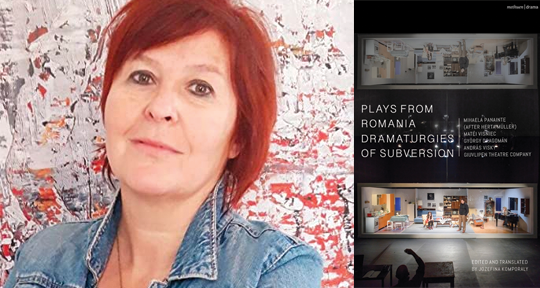This week, our editors from around the world report on a controversial book prize winner in Slovakia, a comic strip festival in Belgium, and a moving performance of a collection of short stories centered on gay life in Puerto Rico. Read on to find out more!
Julia Sherwood, Editor-at-Large, reporting from Slovakia
Throughout June, ten writers longlisted for Slovakia’s most prestigious literary prize, the Anasoft Litera, presented their works online, at events in the capital, Bratislava, and the open-air summer festival Pohoda held at Trenčín airfield. However, much attention was paid to a major controversy surrounding one of the nominated books, Nicol Hochholczerová’s remarkable debut Táto izba sa nedá zjesť (This Room Can’t be Eaten Up), which depicts the relationship between a 12-year-old schoolgirl and her teacher, a man in his fifties. While there is universal agreement on the book‘s literary merits—it is among the five works on the award’s shortlist, announced on 7 September—the decision to also nominate it for the René Prize—a competition in which students of selected secondary schools choose a winner from five books—raised concerns that neither the 18-year-old students nor their teachers are equipped to handle sensitive subject without specialist psychological support. Fearing the withdrawal of funding or even lawsuits by incensed parents, the jury decided to withdraw Hochholczerová’s book from the competition, offering instead to send the book to the schools on request. While the resulting turmoil was great for sales, it has caused a rift in the literary community, put the talented young writer under a huge amount of stress, and aroused some fear that it has sounded the death knell of the René Prize.
After two years of Covid-related disruptions, the Authors’ Reading Month (ARM), Europe’s largest literary festival, organized by the Brno-based publishing house Větrné mlýny in partnership with Slovakia’s Literárny klub, returned this summer. It was hosted by venues in five cities of the Czech Republic and Slovakia (Lviv, which has hosted the festival in the past, was not on this year’s itinerary because of the war in Ukraine). With Icelandic literature as the focus of the twenty-third edition, some of the best-known Czech and Slovak writers were paired with thirty-one authors from Iceland, including Hallgrímur Helgason, Bragi Ólafsson, and Jón Kalman Stefánsson, as well as Sjón, who also attended the Slovak premiere of The Northman, the American epic action thriller based on Viking myths whose script he co-wrote with the director Robert Eggers.


